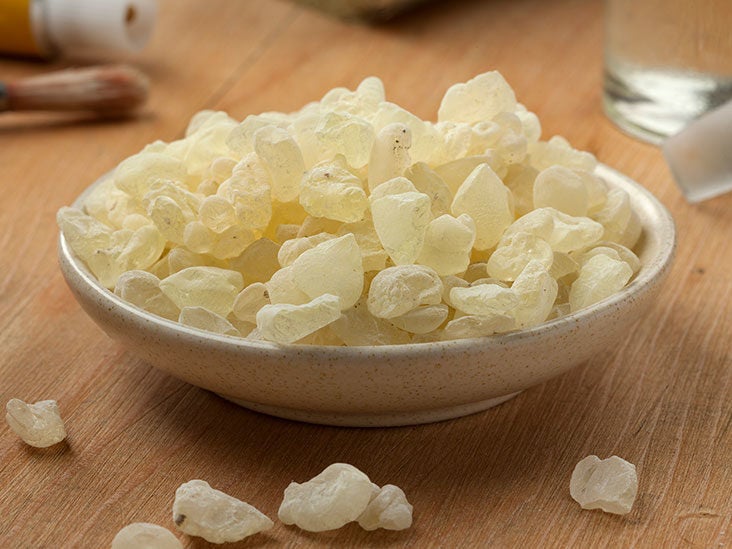Ad Code
Translate
Smart strategies for trading on crypto exchanges
Five Do’s For a Healthy Turnover That Bolsters Talent-Retention
Discover Honeybee Pharmacy (2025 Guide Important Consumer Tips)
What is Ozempic (semaglutide)? (Updated in 2025)
Posture Bra: Improving Back Support and Comfort
How To Find Suitable Properties In Cyprus?
10 Effective Strategies to Improve Domain Authority of Your Website
What Does Mastic Gum do for the Stomach?

Mastic is a jelly-like resin extract produced from the stem and leaves of The Mediterranean Pistacia Lentiscus. Several studies have been published to confirm that mastic gum is beneficial for gut health. On top of that chewing, only one gram of mastic gum per day for two weeks can bring out significant therapeutic effects for the gut. Here is how it works:
Kills Bacteria H. Pylori
H. Pylori is one of the biggest causes of stomach ulcers. It is particularly attracted to the epithelial cells of the gut and has well-adapted mechanisms to ward off any of the conventional protective mechanisms used for bacterial growth in the gut. Mastic gum acts as an adjuvant to the stomach’s bactericidal and defense mechanisms. Thus, preventing colonization of H. Pylori and its subsequent complications.
Cures Peptic Ulcers
One of the main causes of peptic ulcer disease is infection with H. Pylori. Once this gut bacteria is eradicated, a healthier environment can be maintained. Other causes include smoking, alcohol, diagnosed inflammatory diseases like ulcerative colitis, Crohn’s disease, and celiac disease.
The underlying physiology is that any agent that disrupts the protective barriers of the gut (including mucus, high blood flow, peristalsis for smoother emptying, increased secretions of enzymes, and HCl) increases the risk of ulcer formation. These ulcers may progress to erosions, fibrosis and in worst-case scenarios may even perforate the gut wall. Mastic gum cures peptic ulcers by its bactericidal property that decreases the burden on the stomach to fight off bacteria. Its therapeutic properties can also be attributed to its antioxidant and anticancer chemical composition.
Prevents Dental Plaque Formation and Gingival Inflammation
Most bacteria enter the gut through the oral cavity. Since the mouth does not have bactericides, the stomach tends to be overburdened with the task of killing off the offensive pathogens. Nonetheless, bacterial growth may progress in the oral cavity with plaque formation - a yellow sticky substance that toughens over time and is difficult to brush off. It can cause dental caries and inflammation of the gums. Since the mouth is devoid of any bactericidal agents, controlling bacterial growth in it can be difficult.
Regular brushing, flossing, and using a mouthwash are helpful. But the use of mastic gums kills bacteria far more effectively. Studies have shown that only after four hours since chewing mastic gum, the saliva samples of these people showed significantly reduced bacterial growth compared with their samples taken earlier. Hence, the lesser load of bacteria transported through the oral cavity to the stomach, the better chances of killing off microorganisms that may enter through food.
Cures Dyspepsia
Dyspepsia is commonly known as indigestion and has been experienced by everyone at least once in their lifetime. Its symptoms include heartburn, bloating, nausea, belching, feeling of fullness, and abdominal discomfort after taking meals. This can be an unpleasant experience and is one of the reasons for food aversion and decreased appetite. Mastic gums have anti-inflammatory and antioxidant properties that prevent these exaggerated responses due to the brain’s hyperalgesic and hyper-vigilant states. - especially since the brain-gut axis works in unison.
Mastic gums release chemicals that not only blunt the inflammatory effect of several mediators present in the gut but also help in effective digestion and faster clearance of the stomach. Faster emulsification and effective peristaltic function prevent the regurgitation that is associated with heartburn, belching, and bloating.
Anticancer Properties
Researchers have found that the chemical composition of mastic gum contains triterpenoid analogs. These are known to be anti-cancer agents that prevent the proliferation of cancer cells through their anti-atherogenic and antioxidant attributes. The stomach is susceptible to several insults by carcinogenic substances, both known and unknown. That is why the growth of polyps and benign dysplasia is common in old age - accompanied by dangerous signs such as hematemesis and anorexia. These neo-proliferative overgrowing lesions can progress to cancer without timely intervention. Mastic gums prevent this progression at a cellular level.
Finally, there is enough quantitative and qualitative research to support the hypothesis that mastic gums don’t help maintain gut health. The best part is that low doses of the gum are significantly effective. As compared to proton pump inhibitors and antibiotics that usually have longer courses and may cause antibiotic resistance as well as other side effects, respectively.

Social Plugin